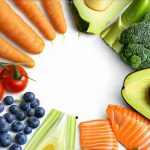Digestion is often an overlooked aspect of overall health, yet it’s foundational to how we feel, our energy levels, and even our mental wellbeing. Many people experience digestive discomfort – bloating, gas, constipation, or diarrhea – at some point, and frequently these issues aren’t caused by a serious medical condition but rather by common dietary habits that unintentionally sabotage the process. Understanding these mistakes allows us to make simple changes with significant positive impact. A healthy gut isn’t just about what we eat; it’s also about how we eat and the combinations we choose. It’s surprisingly easy to inadvertently create digestive stress, even when aiming for a “healthy” diet.
Our bodies are incredible at adapting, but constant digestive strain can lead to inflammation, nutrient deficiencies, and long-term health problems. This article will explore some of the most prevalent dietary pitfalls that hinder digestion and offer practical advice on how to avoid them, paving the way for a happier, healthier gut. It’s about working with your body’s natural processes rather than against them.
The Rush to Restriction & Extreme Dieting
Many popular diets focus heavily on elimination – cutting out entire food groups or drastically reducing calorie intake. While these can sometimes lead to short-term weight loss, they often wreak havoc on digestion. Rapidly changing your diet and severely restricting certain foods can overwhelm the digestive system, leading to imbalances in gut bacteria and reduced enzyme production. Think about it: your body needs a consistent supply of nutrients to function optimally, including those needed for digesting different food types.
Extreme dieting also frequently leads to eating disorders or disordered eating patterns, which further disrupt normal digestive processes. Focusing on what you can’t have creates stress around mealtimes and can lead to anxiety, ultimately impacting your ability to properly digest and absorb nutrients. A more sustainable approach involves mindful modifications rather than drastic overhauls. It’s about finding balance and incorporating a variety of whole foods that support digestive health.
Instead of eliminating entire food groups without medical reason, consider identifying true sensitivities through an elimination diet guided by a qualified professional. This allows you to pinpoint specific problem foods and reintroduce them strategically, minimizing disruption to your gut flora.
Fiber Fumbles: Too Little or the Wrong Kind
Fiber is essential for healthy digestion, acting as both a bulking agent and food source for beneficial gut bacteria. However, simply increasing fiber intake isn’t always the answer. Many people make the mistake of drastically increasing their fiber consumption without adequate hydration, which can actually worsen constipation. It’s like trying to push a rock uphill with no lubrication!
Furthermore, there are different types of fiber, each playing a unique role. Insoluble fiber adds bulk and speeds up digestion, while soluble fiber dissolves in water, forming a gel-like substance that slows down digestion and helps regulate blood sugar levels. A healthy diet requires both. Focusing solely on one type can lead to imbalances and digestive discomfort. Consuming predominantly processed sources of fiber (like many commercial cereals) also misses the point—whole food sources are far more beneficial due to their nutrient density and naturally occurring enzymes.
The Importance of Gradual Increase & Hydration
When increasing your fiber intake, do so gradually over several weeks, allowing your digestive system time to adapt. Start with small additions – a handful of berries, a tablespoon of chia seeds, or an extra serving of vegetables – and monitor how your body responds. Simultaneously, increase your water intake significantly. Aim for at least eight glasses of water per day, and even more if you’re physically active.
Pay attention to the source of your fiber too. Prioritize whole foods like fruits, vegetables, legumes, and whole grains over processed options. These provide not only fiber but also vital vitamins, minerals, and antioxidants that support overall health. Consider incorporating fermented fibrous foods such as sauerkraut or kimchi, which contribute beneficial probiotics alongside their fiber content.
Prebiotic Power: Feeding Your Gut Bacteria
Remember that fiber isn’t just about bulk; it’s also a food source for your gut bacteria. These bacteria thrive on prebiotic fibers found in foods like onions, garlic, leeks, asparagus, and bananas. By including these prebiotic-rich foods in your diet, you are essentially “feeding” the beneficial microbes in your gut, promoting a healthier microbiome and improved digestion. A diverse microbiome is crucial for optimal digestive function and overall wellbeing.
Food Combining & Meal Timing Matters
While often debated, food combining principles can be helpful for some individuals experiencing digestive issues. The idea is that certain food combinations are harder to digest than others, leading to bloating, gas, or discomfort. For example, combining large amounts of protein with carbohydrates (like steak and potatoes) requires more digestive effort from the body, as they require different enzymes and digestive environments.
Meal timing also plays a role. Eating large meals close to bedtime can disrupt sleep quality and hinder digestion, as your body focuses on sleep rather than processing food. Similarly, eating too quickly without proper chewing can overwhelm the digestive system, leading to indigestion and poor nutrient absorption. Taking time to savor your food and chew it thoroughly allows enzymes in your saliva to begin breaking down food, easing the burden on your stomach and intestines.
Ultimately, paying attention to how different food combinations and meal timings affect your body is key. What works for one person may not work for another. Experimenting with mindful eating practices can reveal valuable insights into what supports your optimal digestion.
In conclusion, optimizing digestion isn’t about following rigid rules or restrictive diets; it’s about understanding how different foods and habits impact your gut health and making informed choices that support your body’s natural processes. It requires a level of self-awareness and experimentation to find what works best for you, prioritizing whole foods, mindful eating, and gradual changes over drastic measures.


















